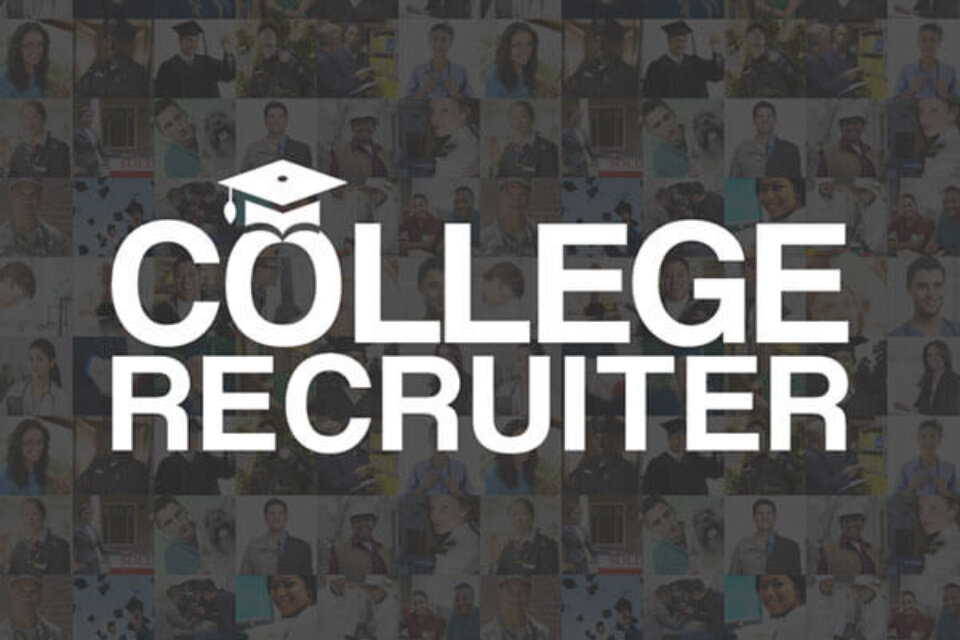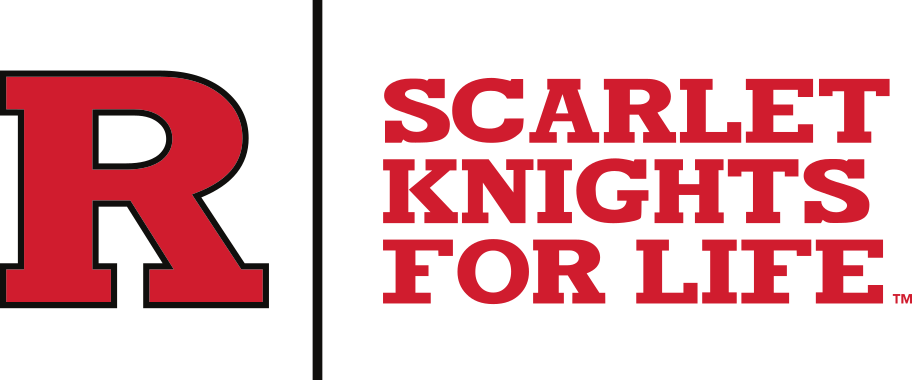
Sports analytics careers: Recent college grad discusses keys to success was originally published on College Recruiter.

Group of analysts reviewing data. Photo courtesy of Shutterstock.
It’s no secret that analytics and data are driving, and changing, the world of sports, at all levels. From high school to college, and the pros, individuals, organizations, and teams are using analytics to drive decisions on and off the field. The rapid rise in the use of sports analytics led to the creation of the popular MIT Sloan Sports Analytics Conference, called “a forum for industry professionals, students, and fans to discuss the increasing role of analytics in the sports industry.”
The growth of sports analytics has also prompted Syracuse University to launch the first-ever sports analytics bachelor’s degree program in the United States. Launching in the Spring of 2017, the Syracuse University sports analytics bachelor’s degree program will focus on computer programming, statistics, math, and of course, sports.
In May of 2016 Zack Sims graduated from the University of Georgia with a double major in Digital and Broadcast Journalism and Statistics. He also earned a certificate from UGA’s sports media program, preparing him for a career in sports, or sports analytics. While at UGA Sims wrote for a few sports web sites, covered live events, and practiced analyzing sports data on his own. He was also a Division I athlete, participating in track and cross country. An informational interview helped Sims earn a sports analytics internship at Competitive Sports Analysis (CSA), an Atlanta, Georgia-based sports analytics company.
Below, Sims talks to College Recruiter about how he landed his sports analytics internship, what he does as a sports analytics intern, the type of technical and soft skills needed to succeed in sports analytics careers, what he knows now that he wish he knew while in college – and much more:
Informational interview led to sports analytics internship
Sims was required to complete an informational interview with a sports industry professional as part of a sports media class at UGA.
“I told my professor that I wanted to work in sports analytics, and he told me he had recently met a woman named Diane Bloodworth, who owned her own sports analytics company in Atlanta,” said Sims. “I interviewed with Diane and got an understanding for how she got into the industry. She told me to stay in touch, so I called her shortly before graduating and asked if she had any openings. She offered me an internship, and I started working shortly after.”
Sports industry background
During the informational interview, Sims was able to discuss how his previous work in sports prepared him for a sports analytics internship. In the summer of 2015 he served as the Broadcast Intern for the Sunbelt Collegiate Baseball League, where he did play-by-play and commentary, and wrote game stories. He also wrote for three different websites covering college football. During his time at UGA, he covered a multitude of sports (swimming, softball, basketball, baseball and more) for the UGA sports media program. Two of his assignments from that program got published in the Atlanta Journal-Constitution and the Athens Banner-Herald.
Day-to-day duties of a Sports analytics intern
At CSA, Sims works as an analytics intern. CSA currently offers two products. scoutPRO is for fantasy football players. This product provide projections, access to a fantasy football expert, and insights into player data. CSA also offers scoutSMART, which is an analytics based recruiting software. It shows college football coaches how well a recruit will fit into their program. CSA currently only works in college and pro football. Its clients are fantasy football users (scoutPRO) and college football coaches (scoutSMART).
Sims’ day-to-day duties go far beyond the job title, because CSA is a startup company. Sims said this internship has provided him with experience in a lot of different areas beyond sports and analytics. He uses math, business and communication skills on a daily basis. He helps with CSA marketing efforts, managing social media, and analyzing NFL data. He manages software databases and much more.
“When you work at a startup, you aren’t tied down to specific duties,” says Sims. “You really help in any way you can. I help manage our corporate website, run our Twitter accounts, head up our email marketing campaigns, manage the database for our scoutSMART, and create some visual analytics for our scoutPRO users. I’ve been able to work in so many areas during my internship.”
Software skills crucial in sports analytics careers
To succeed in a career in sports analytics, one must be able to have much more than a knowledge and interest in sports. They must be analytical, and be able to understand, learn, and use a variety of software programs, and have a variety of technical skills.
Prior to this internship, Sims used Kaggle, a social media site for data analysts, to practice analyzing sports data. He primarily looked at Major League Baseball data on Kaggle. Now, at CSA, R, Tableau and Excel are the three main programs Sims uses for conducting data analysis.
“They are great for breaking down large data sets and producing something meaningful,” says Sims. “I also use Constant Contact for managing our email marketing campaigns.”
Coding/programming skills important in sports analytics careers
“The one thing I wish I would have known was how important coding/programming is,” says Sims. “If you want to get into analytics, you really need to be proficient in a few programs. I was exposed to R and SAS while at UGA, but I didn’t really start learning them in-depth until I started teaching myself the last few months.”
Sims expanded on the technical skills needed to succeed in a sports analytics career, saying “I think you need to know R (or SAS), Tableau, and SQL to land some bigger jobs in analytics. Each of these plays a very big role in any analytics job. The good thing is there are plenty of places on the internet where you can learn these tools (W3Schools, R for Everyone, Tableau Website, Kaggle).”
Soft skills are crucial to sports analytics career success
You can love sports, and be an analytics genius, but soft skills are still crucial to succeed in sports analytics careers.
“I definitely think you need to be effective at communicating to work in analytics,” says Sims. “There are a lot of people who can break down data, but there aren’t many people who can do that and clearly explain what the data is telling them.”
From college classroom to the real world
Sims says the sports media and journalism classes he took at UGA helped prepare him for his internship.
“These classes made it easy to tell a story from the data I work with,” says Sims. “I think my statistics classes taught me what to look for when analyzing data.”
The future of sports analytics careers
Since starting his internship and searching for jobs in sports analytics, Sims has noticed just how fast the field of sports analytics is growing: “I’ve learned the sports analytics market is growing like crazy,” he said. “There are so many opportunities emerging, and this should continue for the next couple of years. This excites me, because I know I can work my up in the industry.”
Passion for sports important
Most college students or recent college grads who pursue a career in sports analytics are likely going to have a passion for sports. And that is another valuable trait to showcase with employers, when interviewing for jobs in sports analytics.
“I definitely think you need a passion for sports to be successful in this field,” says Sims. “When I’m trying to analyze data for our fantasy football users, it helps that I know what kind of metrics are important to them. I love football and I also play fantasy football, so it helps me know what our customers will want to see.”
Being a well-rounded college graduate is valuable
“I’m a believer that the more versatile your background is, the better,” says Sims. “Being passionate about sports is great, but if you can also break down data and draw important meaning from it, you can definitely find a job in sports analytics.”
The importance of a sports analytics internship
An internship is crucial to success.
“It’s really hard to just land a sports analytics job when you come out of college, unless you’ve done a lot of work/projects on your own,” says Sims. “Internships are a stepping stone for you to get a job with a sports team, sports technology company, or other sports organization or business.”
The future
Sims would welcome the chance to stay at CSA once his internship is complete. He also still dreams of working in an analytics role for a professional sports team/organization, or sports media company. For now, he knows he’s getting some of the best on-the-job training he can to pursue his passion and dream of working in the fast-growing field of sports analytics. Sims calls working at CSA “a great experience,” adding that he “gets the freedom to explore projects that I might not get a large company.”
Sports analytics careers are not the future, they are the present. Zack Sims is prepared to take the next step in his career. Current college students, recent college grads and entry-level job seekers can prepare for the next step in their career by staying connected to College Recruiter to learn about careers in sports analytics. To do so, visit our blog, and connect with us on LinkedIn, Twitter, Facebook, and YouTube.

Zack Sims
About Zack Sims
Zack Sims graduated from the University of Georgia in the srping of 2016 with a double major in Digital and Broadcast Journalism and Statistics. He also earned a certificate from UGA’s sports media program and was a member of the UGA track and cross country teams.

